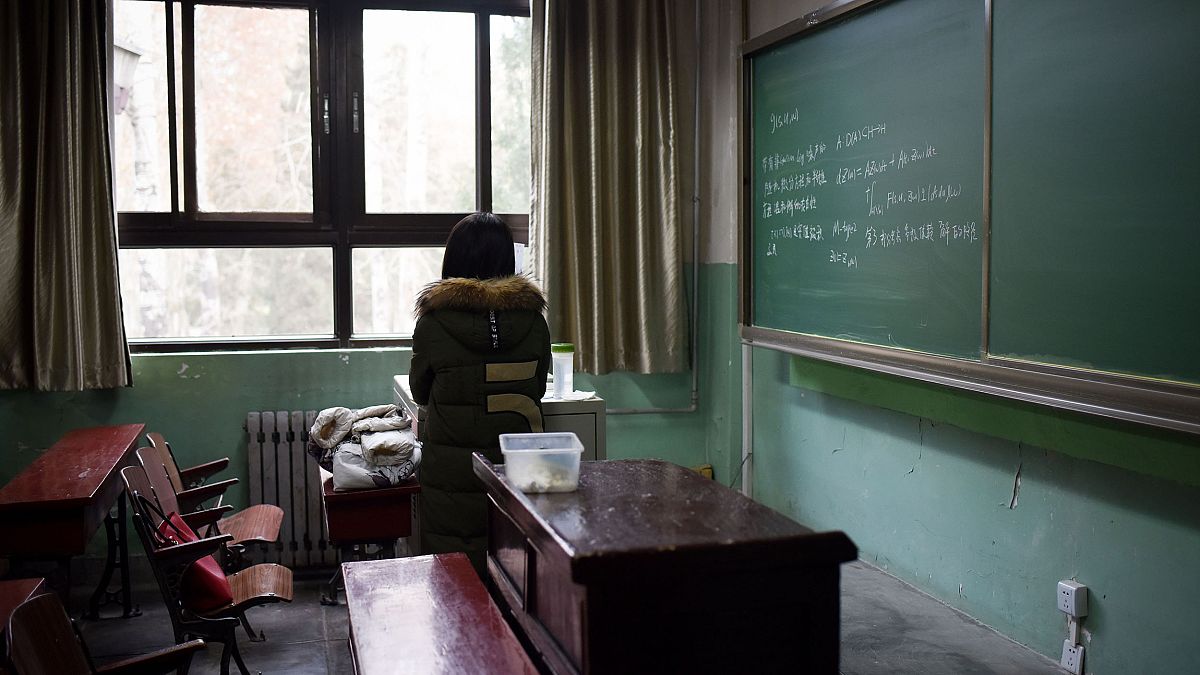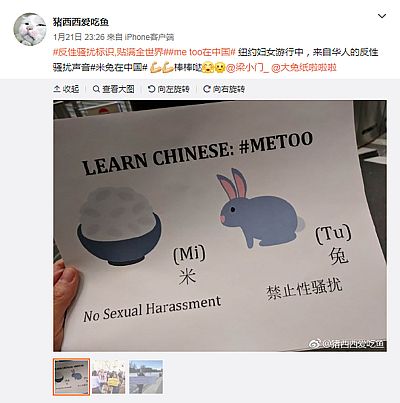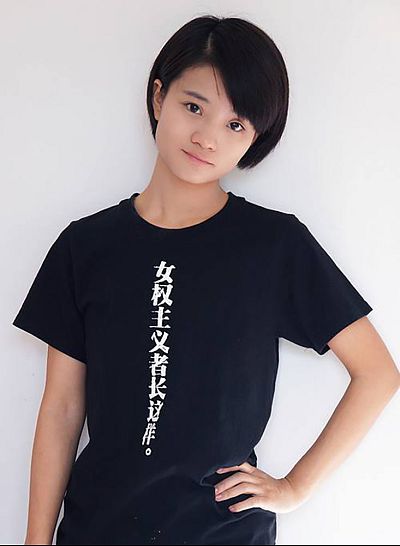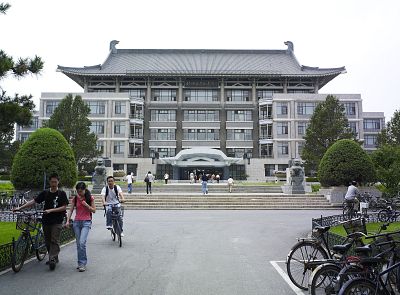"I would have never conceived an anti-sexual harassment movement of such a large scale this time last year."
BEIJING — Chinese feminists are trying to stay one step ahead of censors as they push the country's fledgling #MeToo movement.
The #MeTooInChina hashtag got nearly 4.5 million clicks in two weeks on Weibo, the country's popular Twitter-like platform.
But like anyone who engages in public dissent in China, feminist activists are closely monitored by the government. Posts including the hashtag were swiftly removed by the country's censors and the term was blocked.
Undeterred, the feminists found a workaround using emojis and Chinese characters for "rice bunny," the Chinese word for rice is "mi" and for bunny is "tu," to replace "MeToo" in English. The hashtag got about 5 million clicks before government censors cracked down on it.
While #MeToo started within the entertainment business in the U.S., universities are its strongholds in China. Outside of the academic community, women still remain mostly quiet about the issues of sexual assault and harassment.
The movement initially made waves here in January when former doctoral student Luo Xixi wrote an open letter accusing Chen Xiaowu, her professor at Beihang University, of sexually assaulting her and other female students.
After an investigation, Beihang University fired Chen, citing "zero tolerance."
But the movement was galvanized last month when the 20-year-old story of Gao Yan resurfaced — despite intense censorship. Gao was a promising student at China's prestigious Peking University in 1998, but repeated sexual advances — and allegedly rape — by her professor Shen Yang left her ashamed and helpless. She took her own life, ending what she called her "meaningless" existence.
Gao's death didn't cause much of a stir at the time. However, inspired by the #MeToo movement, her friends posted remembrances online on the anniversary of her death. In the current climate, there was widespread outrage.
Shen has denied the charges and no longer works at Peking University, but he was fired from his job at Shanghai Normal University within two days of the story going viral.
China's #MeToo movement has been driven primarily by university students and young graduates.
Li Jinzhao, professor of feminism studies at Beijing Foreign Studies University, said that China's controversial one-child policy, which was put in place in 1979 and was aimed at curbing the country's birthrate, has had an indirect impact on the outspokenness of these young women.
"Parents in cities have been devoting a lot into the education of their only child," Li said, adding that the proportion of females attending college or living independently is "very high."
Leta Hong Fincher, an American feminist and the author of "Betrayal of Big Brother: The Feminist Awakening in China," agreed.
"More and more urban educated young women recognize there is a lot of sexism in Chinese society and they feel the need to demand equal treatment," she said. "The internet has also played a role in informing particularly educated young people in China about what's happening in the world, even though the internet is heavily monitored."
Fincher added that these women are able to express their views because of their privileged economic position.
"I don't think the sexual harassment is worse on university campuses than in factories, in the workplace, or in the countryside. But these young students have a lot more freedom than someone who has to making a living," said Fincher. "It's much riskier for, say, a factory worker to stand up and demand rights for their employer because they are almost certainly going to experience some form of retribution. They can very easily be fired."
Since 2011, women have made up about 50 percent of students at Chinese universities. As a result, they are demanding "a more friendly environment," according to Xiao Meili, 28, who walked 1,200 miles across the country to raise awareness about sexual harassment in 2013.
According to survey released by the Guangzhou Gender Education Center in 2017, nearly 70 percent of the 6,529 respondents reported experiencing sexual harassment in universities.
To Zhang Yajun, co-host of a current affairs podcast, "Women," that so many have spoken out is already a sign of progress.
"I would have never conceived an anti-sexual harassment movement of such a large scale this time last year," Zhang said. "One or two decades from now, these young university students will be the backbone of the society. If they have a better sense of equal rights and self-protection, it would be very helpful to the overall development of the Chinese society."
Despite their best efforts, some women are still being silenced, intimidated and threatened for speaking out.
Yue Xin, a student at Peking University's School of Foreign Languages, published an open letter at the beginning of April demanding the school make public its decades-old investigation into the Gao case.
Yue says she was harassed by the teachers and administrators for weeks over her advocacy and threatened that she might not "successfully graduate."
In a blog that quickly went viral, Yue recounted how on April 23 she was abruptly woken up in her dormitory in the middle of the night by a school official and her mother, who was in tears.
The official demanded that she delete all the materials related to her demand and sign a written guarantee that she would not pursue the situation any further. She was then forced to go home with her mother.
"I didn't do anything wrong and do not regret submitting the request," she wrote.
Yue's name and blog have since been censored on Chinese social media.
In a statement, the college said a "worried" school official had called Yue's mother amid concerns about her "health, safety and growth."
Yue did not respond to NBC News' request for comment.
Petra Cahill reported from London, and Dawn Liu from Beijing.



